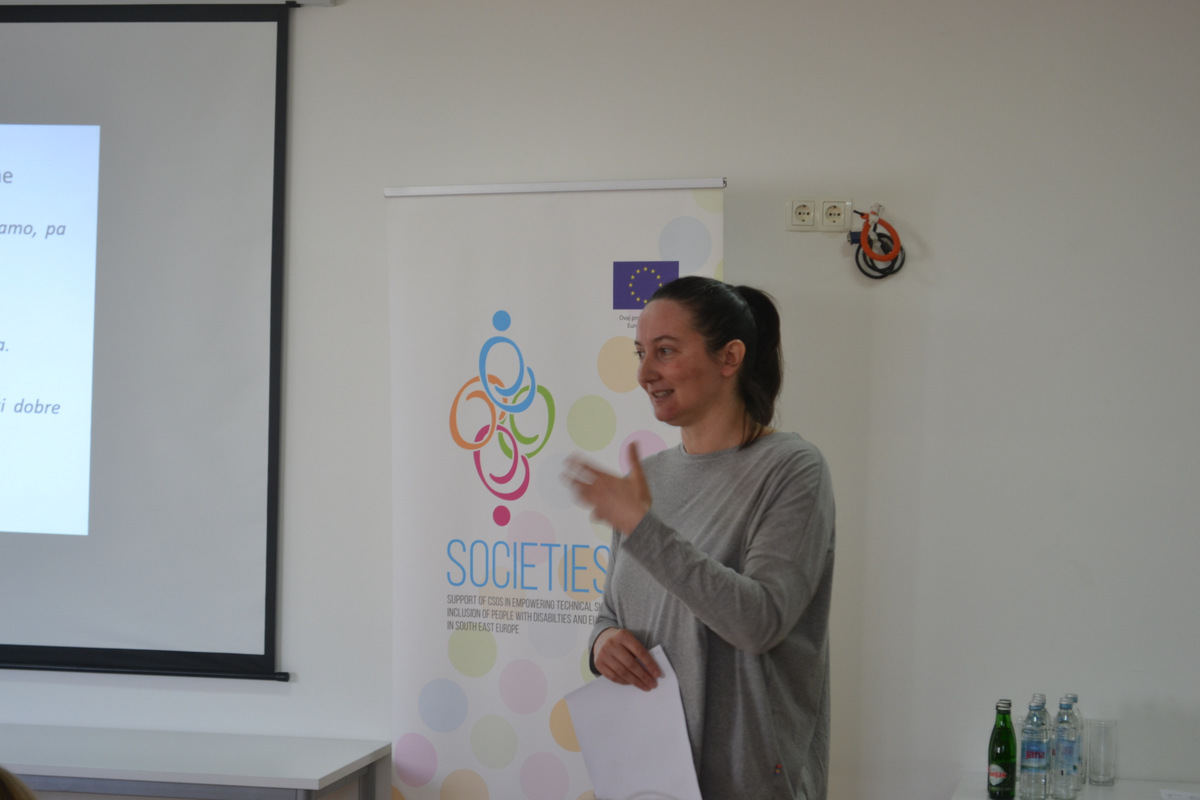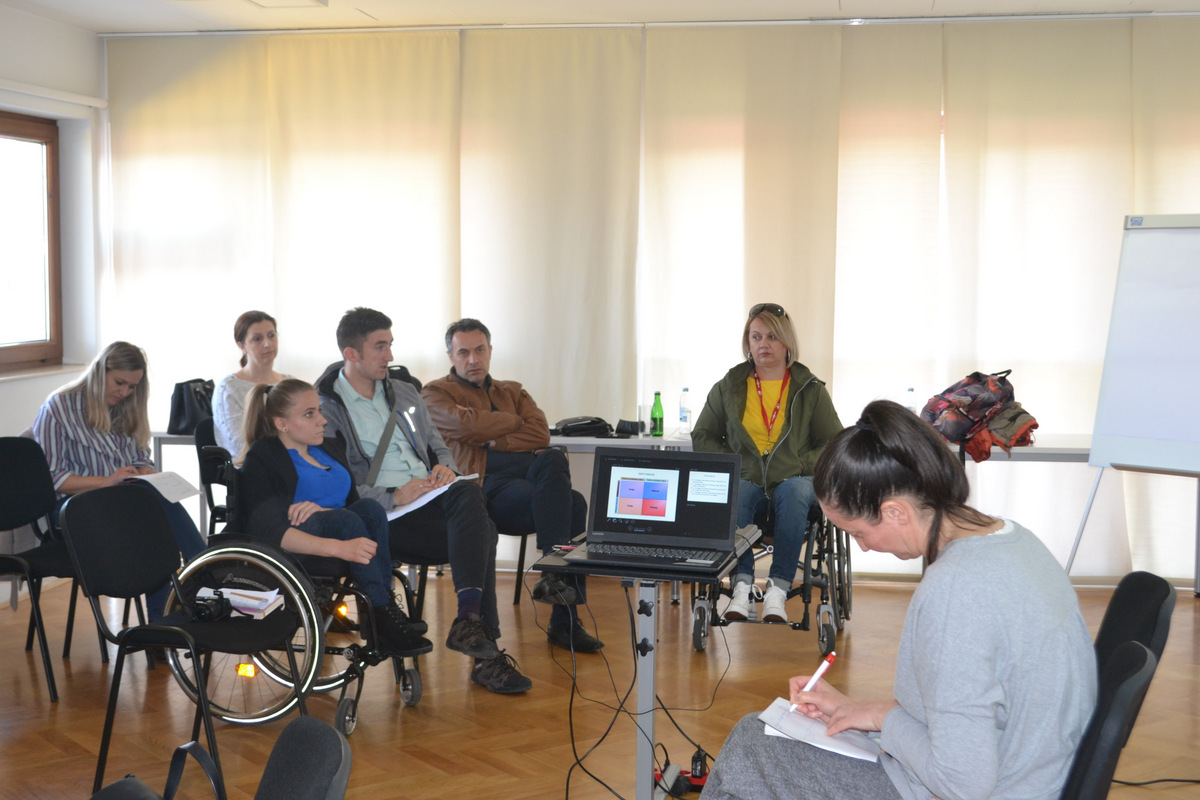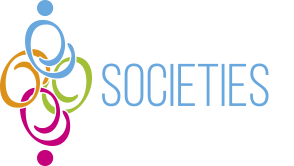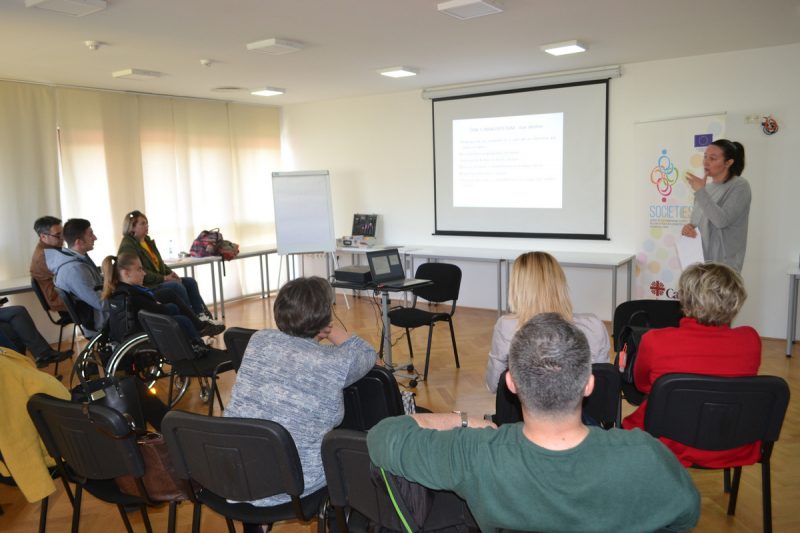As part of the SOCIETIES project, Caritas Bosnia and Herzegovina initiated the process of forming social inclusion working groups. The aim of these working groups is to enhance the participation and role of civil society organizations in the decision-making process and to exchange the knowledge and experience of these associations and organizations with public institutions on the processes of social inclusion of people with disabilities and the corresponding policies.
In this regard, a working group in Sarajevo held a meeting on 17th of May on “Women with Disabilities in Bosnia and Herzegovina”. The meeting of the working group brought together representatives of 10 CSOs with the moderation of prof. Dr. Lejla Kafedžić from the Faculty of Philosophy of the University of Sarajevo.
During the meeting, participants discussed about women with disabilities as a particularly vulnerable group. Many data about the levels of education and employment evidence the poor status of this category, but the participant pointed out that there is no or lack of deeper analysis of the disadvantage of women with disabilities in Bosnia and Herzegovina. Participants in the open discussion also discussed discrimination on the labor market, salary levels, parenting and decisions of women with disabilities to start a family, stigmatization and generally low level of representation of disability in public and political life in Bosnia and Herzegovina.

In the end of the meeting, the participants made a list of key recommendations and necessary measures to be implemented in order to bring Bosnia and Herzegovina closer to European Union standards, in order to improve the position of persons with disabilities in Bosnia and Herzegovina.
The list of recommendations and necessary measures includes empowering the family of people with disabilities and raising awareness of people with disabilities themselves with an emphasis on their capabilities, raising public awareness and improving the visibility of people with disabilities in society, and establishing systematic solutions to support mothers, who are persons with disabilities.
In the forthcoming period, additional meetings of the working groups for social inclusion of people with disabilities at the level of Bosnia and Herzegovina are planned. All the collected proposals will be unified in recommendations for creating new ones and redefining the existing social policies and legal framework.

Project SOCIETIES aims to assist civil society organizations in upgrading technical skills, or to contribute to the social inclusion of people with disabilities through the implementation of EU standards in South East Europe. The project is being implemented in five countries of Southeast Europe: Albania, Bosnia and Herzegovina, Montenegro, Kosovo* and Serbia with the support of experts from Italy and Bulgaria. The implementation of the project involves 16 partner organizations, including Caritas of Bosnia and Herzegovina. The projected duration is 48 months, until the end of 2019. The project is funded by the EU funds under the program of support for regional and thematic networks of civil society organizations.

